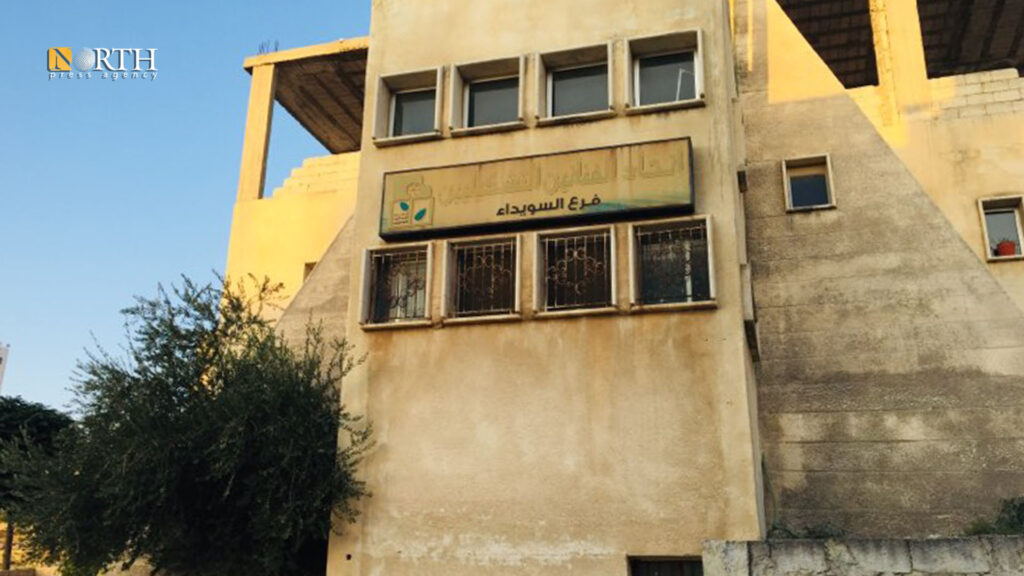By Razan Zeinaddin
SUWAYDA, Syria (North Press) – After the ten-year war that engulfed the country and its far-reaching consequences, which impacted every aspect of life, including the realms of culture, a struggle ensued, packed with intricate details and conflicting ideas. During a period where culture was deprived of freedom and consciousness, it acquired a distinctive character that diminished the role of both culture and intellectuals.
In his poem “Short Political Poems,” the Syrian poet Nizar Qabbani portrayed the state of culture and intellectuals in the region by saying “Writers in my country speak all languages of the world except Arabic. We have a fearsome language that every hope of freedom in which has been sealed.”
Between the current reality and the experiences of intellectuals throughout the previous years, Iman Abu Assaf, a female writer, finds it difficult to provide a concise definition of an intellectual. The prevailing belief is that an intellectual is someone who has obtained an academic degree or specialization.
Abu Assaf expresses surprise at “the narrow understanding of the concept of the intellectual in our societies, where it is limited to the idea that an intellectual merely acquires knowledge or education, without emphasizing the importance of research.”
“There is no distinction made between science and culture, and there is no horizon for this knowledge,” she noted.
In light of the challenges the societies faced post-war, the intellectual, whether from an academic perspective or in terms of elite and intellectual freedom, remain incomplete despite their efforts.
The definition of an intellectual can be summarized as someone who liberates ideas and paves the way for them in the realm of reality. They are the individuals who participate with people in shaping their historical moment and bear responsibility for their stance until the end, according to the writer.
Abu Assaf told North Press that, “the exclusion of intellectuals and culture from the events due to fear will ultimately result in a lasting expulsion from the realm of collective memory.

The Intellectual and the Syrian Issue
According to Abu Assaf, the Syrian event is a unique one in its trajectory, scene, and composition. She wonders what role the culture played before and after the war.
She believes that the public is raising an urgent inquiry, criticizing the intellectuals and the cultural sphere for being, neutral, indifferent, silent, or out of touch with the swiftly evolving events and the intense battleground of cultural, ideological, and existential clashes orchestrated by those who propagate false awareness.
She suggests that the cultural sphere and the intellectuals nowadays are somehow selfish, which is incompatible with the nature of the cultural act as a progressive endeavor.
According to the writer’s viewpoint, the intellectuals did not contribute to the solution of the Syrian conflict, where the accurate reporting of facts was neglected, allowing the opposition groups to align themselves with the positions and interests of their supporters.
Abu Assaf sees the intellectual and the culture have become “a market for media outlets and social media platforms, where positions or arguments are sought or constructed based on the limited presence of an intellectual and their skill and ability to engage in dialogue and present arguments.
She points out that the cultural work in alternative platforms such as forums, initiatives, certain theaters, and intellectual clubs has mostly been characterized by hasty and impatient improvisation. They often lack in-depth information, documentation, well-articulated statements, and solid foundations, particularly when it comes to research-related endeavors.
Abu Assaf highlights the acts of provocation carried out by the parties involved in the conflict, using demonstrations that were both passive and designed to incite.
She believes that what the culture has done was “far in the shadow, in safe places, and on secretly printed papers, part of it was poetry and stories that repeated the “deformed, the outcast, and the heretical.”
Societal culture
The societal culture is formed as a cumulative outcome of collective consciousness, deriving its substance from real-life experiences and intertwined with the concerns and diversity of society.
Firas al-Mahithawi, a writer, believes that the diminishing awareness within society is largely influenced by the prevailing political and economic circumstances.
He further explained that the ruling regime is unlikely to change its practices of perpetuating impoverishment and neglecting society. In contrast, the writer emphasized the importance of society reevaluating its interpretations of the Syrian situation.
The Syrian conflict has possibly resulted in an upsurge of religious culture and growing sectarian intolerance, which has come at the expense of marginalizing free cultural thought.
The writer emphasized that prior to the war, religious ideology held significant influence, while free cultural thinking was notably absent.
According to the writer, totalitarian military regimes tend to rely on religious extremists to suppress and counter free thinkers and intellectuals.
Al-Mahithawi says the war has shed light on a disheartening reality, as it provided an opportunity for the regime’s agents and mercenaries to secretly support religious individuals who mask their actions with religious ideologies, which resulted in the devastation of people’s lives, livelihood, beliefs, and thoughts.
The writer also holds intellectuals accountable for their role in these circumstances, stating that they not only turned their backs on the people but also exploited and took advantage of the sacrifices made by the people for personal gains.
Expressing dissatisfaction, the writer criticized the tendency to exploit stories of tragedy and suffering, stating that every martyr’s sacrifice has become a means for intellectuals to advance their own agendas without bearing the true cost.

